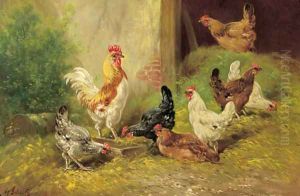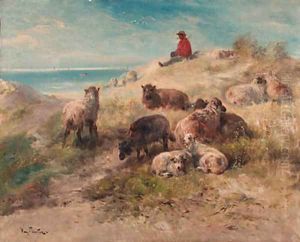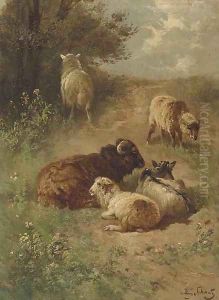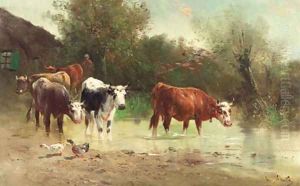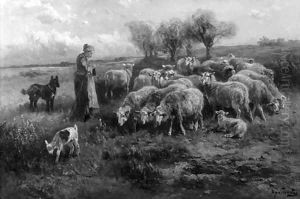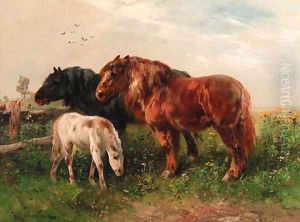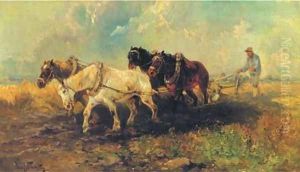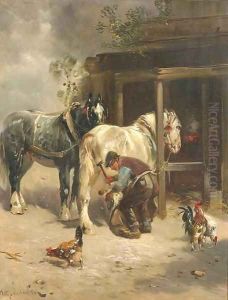Henri Schouten Paintings
Henri Schouten was a Belgian painter known for his realistic animal paintings, still lifes, and rural scenes. Born on February 6, 1857, in Brussels, Belgium, Schouten was part of a family with a strong artistic heritage; his father, Jozef Schouten, was also a painter.
Henri Schouten's work often featured domestic animals, especially farm animals such as cows, sheep, and poultry. His paintings are characterized by meticulous attention to detail, a realistic portrayal of the texture of fur and feathers, and a keen interest in capturing the play of light on his subjects. Schouten's compositions typically present a serene and often idyllic view of rural life, reflecting the influence of the pastoral tradition in European art.
Despite the popularity of Impressionism and other avant-garde movements during his lifetime, Schouten remained committed to a more traditional, realist style. This commitment to realism did not prevent him from achieving success; his works were widely appreciated and collected during his lifetime.
Schouten received his artistic training at the Académie Royale des Beaux-Arts in Brussels, where he studied under various teachers and honed his skills in painting. Throughout his career, he exhibited his work in Europe, gaining recognition and winning awards.
Henri Schouten continued to paint until his death on April 27, 1927, in Brussels. Today, his work is part of various art collections and continues to be of interest to collectors and those who appreciate traditional realist painting. Schouten's legacy is that of a skilled painter who captured the essence of rural life and the natural beauty of the animal kingdom with a quiet but persuasive realism.
